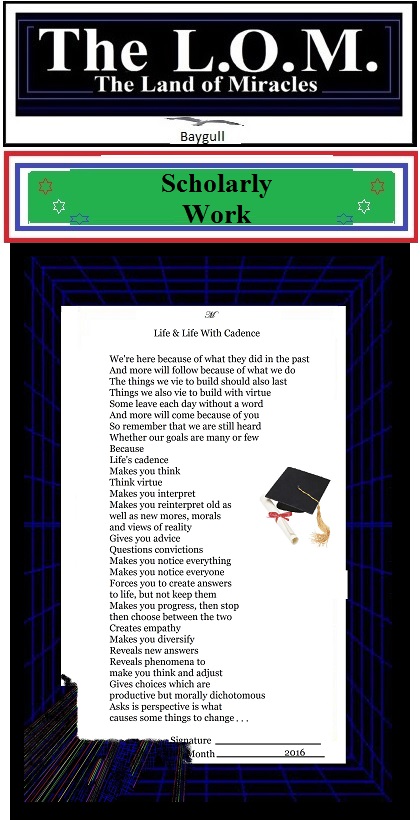6) How Political Scientist Safeguard Against Bias Slipping Into Scholarly Work (Safeguarding Against Bias) Poem by Otradom Pelogo
6) How Political Scientist Safeguard Against Bias Slipping Into Scholarly Work (Safeguarding Against Bias)
How Political Scientist Safeguard Against
Bias Slipping Into Scholarly Work
(Safeguarding Against Bias)
Protectionism limits competition from abroad, but allows competition from within... (and) Transparency is essential because it enables more voices to be heard in the (research) process and limits abuses by the powerful'.
Research, by the time it has reached its readers, most who will have taken for granted that this sacred process is ready to be consumed, flawless and therefore unbiased. In-house oversight as well as regulatory and ethics agencies make this a credible assumption. But because of the presence of these agencies inside and outside of the research process, we know that bias can affect and has affected the most of academic and scholarly work. Guarding against plagiarism and theft of ideas and concepts during and after research can be in opposition to limited transparency which aids in ensuring accountability and fairness.
Research in political science like research and development in any other field of study, whether in engineering, physics, psychology or chemistry, is the cornerstone of a developing and intellectual society. Furthermore it literally sets the stage and places the pieces upon it for the latest inventions, ideas, concepts and soft knowledge or intellectual property. As a result, the political scientist must be forever vigilant in his or her efforts at safeguarding against bias slipping into their work.
"Bias is a skewed view that is presented in such a way that the audience for the research is not in a position to allow for it... (It) comes not from having ethical and political positions - this is inevitable - but from not acknowledging them". (BERA) Research found favoring one point of view over another, especially when there is available resources contradicting or at least creating argument to the contrary, poses a threat to those whose safety or even lives my depend on the results. Henceforth, in the aftermath of that revelation the process now becomes time consuming and costly; in a highly competitive industry this could be fatal. Researches therefore implement safeguards against bias in a number of ways which are accepted by most all political scientist and professionals.
Research must be subject to "Open review and debate at the core of academics inquiry. When this is subverted to other agendas, we all suffer the consequences". (L.B. Godldstein et al.) Just like the tobacco, pharmaceutical, food and beverage industries etc., accountability creates responsible and efficient products and services. Although the outcome will determine whether people are headed or remain sick, if readers / the concerned public is informed or left ignorant, or whether masses of people die, time and ready results run parallel with integrity; the first two directly related to funding and profits.
Pressure from the process as a whole could force alternative ingredients, shortcuts, manipulated data or the absence of data that has proven contrary to the desired outcome. And because plagiarism and intellectual property rights are a major issue, especially in dealing with foreign competitors, like in the information sector as well as the pharmaceutical industry, some privacy is surely expected to protect researchers ranging from political scientist to molecular biologists; transparency is mandatory and expected. In addition, "Intellectual property rights insure the returns to private production of knowledge, at a cost - temporary monopoly rights. Protectionism limits competition from abroad, but allows competition from within... (and) Transparency is essential because it enables more voices to be heard in the (research) process and limits abuses by the powerful". (Stiglitz and Charlton p 36,82)
Although political scientist are producers of mainly soft knowledge, credit, acknowledgement and reputation for that knowledge are analogous to monetary largess from those that they work with and alongside of from day to day. A few of more of these measures which are highly accepted as well as expected are peer review, criticism, the availability of test results and major concepts, and open review and debates etc. (Wikipedia) Scholarly work also should be reasoned, balanced and supported by evidence and a bit theoretical. (M.G. Roskin et al) Safeguarding against bias, although a timely and costly process, which is left in the hands of the researchers, must be perpetually maintained for the safety of the services provided, and the public which is provided by a competent and unbiased process.

This poem has not been translated into any other language yet.
I would like to translate this poem
You've got an A from me sir. Elequontly posed and logically reasoned. Well supported with documentation. This is the model for great essays. You've described the balance between politics (perhaps the most biased field of all) and science (a field which leaves no room for bias) . Informative and appreciated